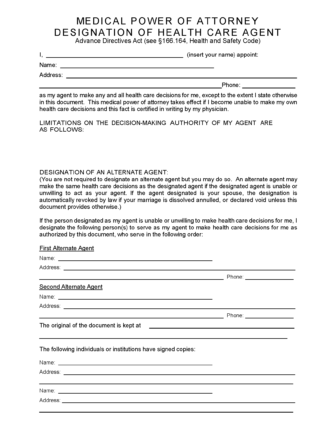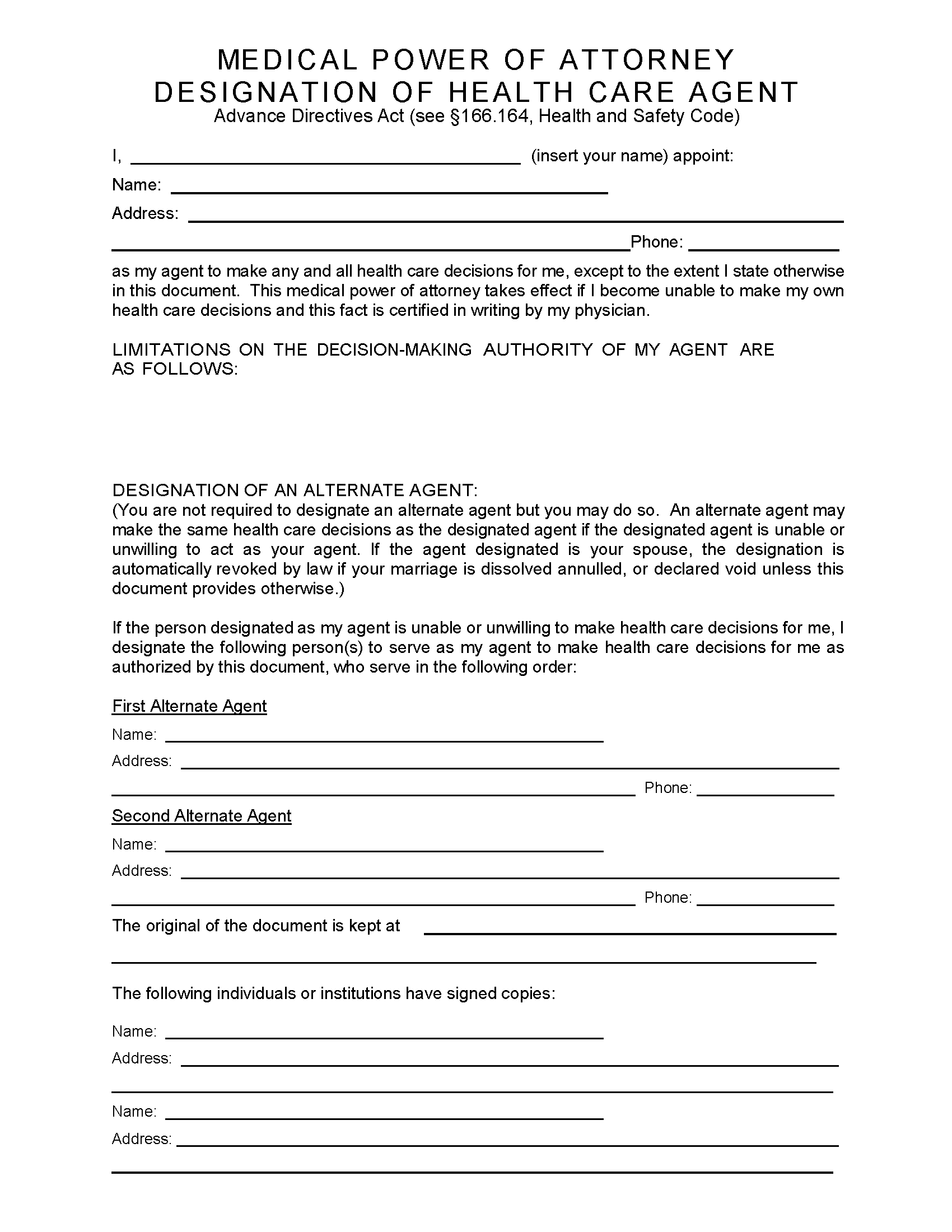Signing Requirements
In Texas, a medical power of attorney must either be notarized or signed by two adult witnesses.[1] One of the two witnesses cannot be[2]:
- Appointed as the principal’s health care agent
- Related to the principal
- A beneficiary of or claimant against the principal’s estate
- The attending physician or their employee
- An employee, officer, director, or partner at the treating medical facility
Power of Attorney (Preview)
Legal Definition
“Medical power of attorney” means a document delegating to an agent authority to make health care decisions executed or issued under Subchapter D.[3]
Revocation
The principal can revoke a medical power of attorney at any time, regardless of their mental state, by doing any of the following:
- Providing oral or written notice to the agent or any health or residential care provider
- Creating a new medical power of attorney
- Performing any other act demonstrating the intent to revoke
Unless the medical power of attorney mentions otherwise, an agent who is married to the principal loses their decision-making authority if the marriage ends.[4]

